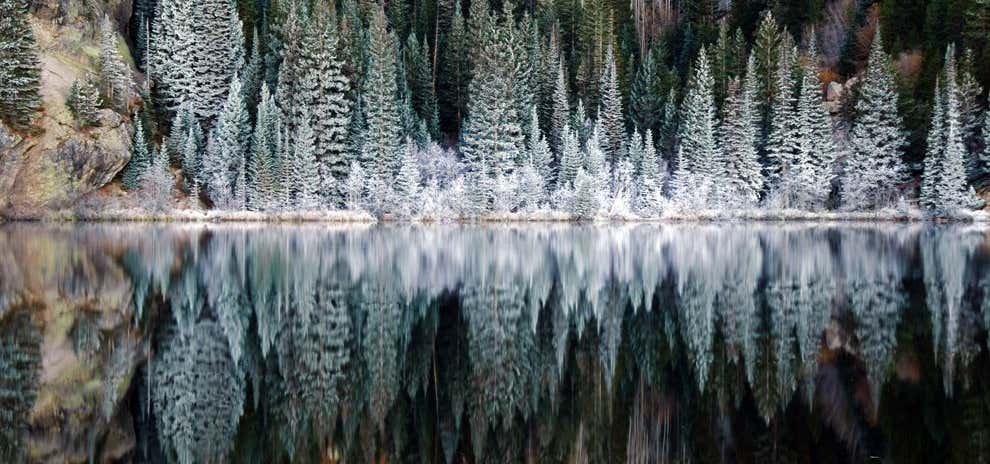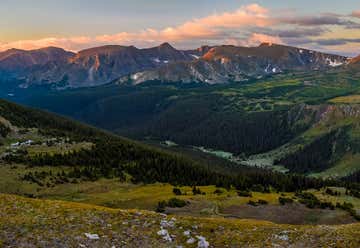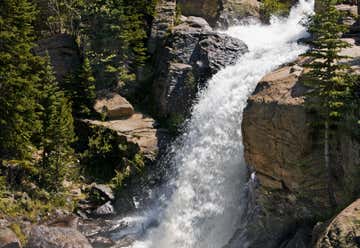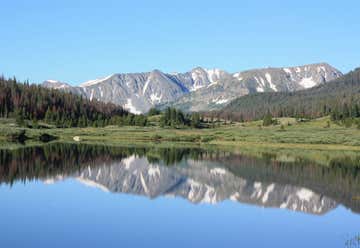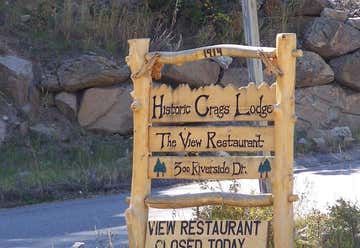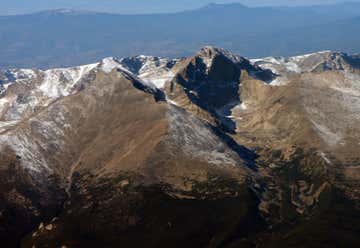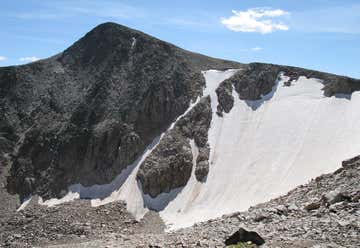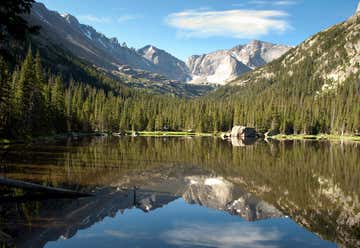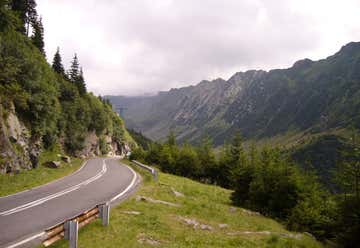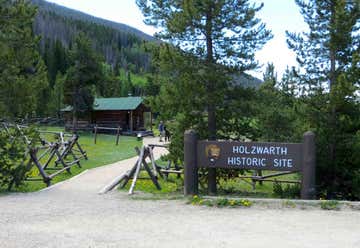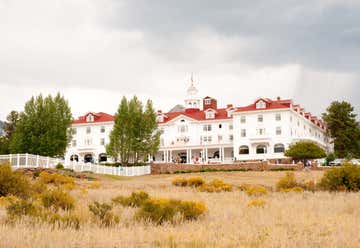Rocky Mountain National Park is well-known for its hiking trails, and with good reason. There’s over 300 miles of them, dotted with wildflowers and offering thrilling alpine scenery. There are also plenty of ways to experience Rocky Mountain National Park that are off the beaten hiking path, so to speak. From the lush green forests to the eternally-snowcapped mountain peaks, here you'll find rugged wilderness beauty like nowhere else in America. These are a few of the best places to get that Rocky Mountain High.
Some tips for visiting Rocky Mountain National Park: -The park is already at a higher elevation than most people are used to, and trails up the mountains bring you even higher...so take a few precautions to avoid altitude sickness. It's suggested that you spend at least 24-48 hours acclimating to the altitude of the park before setting off on a hike, and to stay well rested and well hydrated. If you do experience altitude sickness (symptoms include dizziness, headaches, nausea, and fatigue), descend a few thousand feet as soon as possible. -The Rockies are known for their hiking, with hundreds of miles of trails, but the many lakes in the park offer great fishing and boating, plus there's always mountain biking, horseback riding, and legendary scenic drives. Basically, you don't have to be an experienced mountain climber to enjoy the park! -When hiking, it's tempting to go off the trails...but doing so can damage the fragile ecosystem of the mountains and tundra that the NPS is working to preserve for future generations. Also, keep in mind that it is kind of dangerous. Things get slippery, and there's wildlife all around. -The park is famed for its scenic drives, but if you're looking for convenience, there's a shuttle from Estes Park into the Rockies. It'll save time and gas money, and allow you to relax and enjoy the scenery instead of stressing about traffic and parking.
You'll probably work up a serious appetite exploring the park, so a super-delicious meal is probably going to be in order. Smokin' Dave's is pretty much the perfect place to head after a hike: piles of smoked meat (brisket, chicken, ribs, etc.) plus an awesome selection of sides, appetizers, sauces, and beers round out a gut-bustingly delectable dinner.
If you're a beginning hiker the trail to Alberta Falls is perfect. Less than two miles round trip, and offering amazing views of Alberta Falls, this is a great starter hike. You'll wind your way through pine forests before reaching the thundering, 30-foot tall falls. Plus, if you like what you see, you can take the trail further up to more alpine beauty, or just pack a picnic and enjoy the views.
If your idea of ideal lodging involves a tent and not much else, Long Draw Campground features especially stunning views. It's a popular spot, but with only 25 sites, it's not so big that you can't enjoy the setting.
The Historic Crags Lodge was founded by Joe Mills, who helped get the Rockies national park status, and it's in a great location on a mountain three miles from the park. Of course this place is all done up in a cozy rustic theme, but it's still got modern amenities, like hot tubs.
When you're ready for a bit to eat, the Meadow Mountain Cafe is the definition of "hidden gem." The atmosphere at this cafe is super homey, and they're renowned for their breakfast food (huge pancakes, fresh omelettes, and their amazing coffee which has a hint of cinnamon). Sit on the porch and take a moment to enjoy it all.
Estes Park is a gorgeous town, and it looks even better from on top of Prospect Mountain! The Estes Park Aerial Tramway is a European-style gondola ride that offers incredible views above the pine forests, and at the top, you can do some hiking, snap some pictures, and then ride it back down.
Longs Peak, a flat-topped mountain, is the park's most prominent peak, at an impressive 14,259 feet high. It's one of the harder hikes in the park, but conquering all of Colorado's 14,000+ foot peaks is a popular challenge for many. It's a cold, tough climb, but experienced climbers should be able to do it in a day.
Glaciers cover some of the park's many peaks, which make for some pretty stunning snowcapped mountain tops! One, called Tyndall Glacier, was named for the mountaineer/scientist who identified carbon dioxide as the heat-trapping greenhouse gas that's contributing to global warming, and ironically enough, the glacier that bears his name is shrinking and melting away.
Tons of alpine lakes are tucked away throughout the park, among the peaks and forests. Odessa Lake is a great hike, although a little tougher at almost 9 miles out and back. The breathtaking views of the park you'll get along the way make it well worth the trip, though!
Free tastings of some great craft beers and a primo location make Estes Park Brewery worth stopping by if you're in need of a drink after your adventures in the park. There's a beer for everyone here, whether you like porters, IPAs, or something a little sweeter, and it's a nice place to relax on the porch or shoot some pool.
The Trail Ridge Road section of US 34 (aka the Beaver Meadow National Scenic Byway) is probably the best-known scenic drive in the Rockies. It was the first road to foray into the park's mountains, but was quickly replaced with an easier road to navigate. Trail Ridge has some steep grades and hairpin turns, but was designed to blend in with the natural landscape, so it's more about the views than the convenience. It closes in the winter, so check conditions before setting off.
For a look into the park's history, head to the Holzwarth historic site which preserves a turn-of-the-century guest ranch built by the Holzwarth family. They rented out the cabins from 1917 until the 1970's when the Nature Conservancy bought the property and transferred it to the NPS. Explore the ghost town of preserved cabins and soak up the history!
The Alpine Visitor Center is a great place to orient yourself if it's your first time visiting the park. You'll find a ranger station with loads of info, a gift shop, a cafe, trailheads for several hikes and, best of all, a massive glass wall that offers views into the valley below. You're two miles up in the visitor center, so it's a once-in-a-lifetime view.
Fan of the horror movie "The Shining"? The Stanley Hotel is what inspired Stephen King to write his infamous novel, made even more famous by Kubrick's film adaptation. If you stay at the iconic lodge, be sure to tune your TV into channel 42, they play the uncut version of the movie on a continuous loop 24/7. It's not just known for inspiring creepy movies either...it was also used in "Dumb and Dumber" as well! It's nice that this place doesn't rely on its notoriety; it's a swanky, five-star hotel that's well worth the visit.
The best time to visit Rocky Mountain National Park: If you're visiting for winter activities, then you're probably aware that the park gets a good amount of snow. Some campgrounds are open all winter, but offer limited amenities, and many places in nearby towns close during the off-season. Winter can really bleed into spring in the park, so if you're after that sweet spot for mild weather, err on the side of visiting later in the spring. Summer is easily the most popular time to visit, but be prepared for cool evening temperatures, hot days, and the occasional afternoon thunderstorm. Fall is also a good time to visit to see the foliage, but the weather then can be drizzly, cool, and unpredictable.
